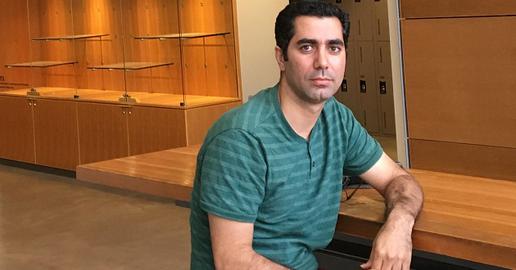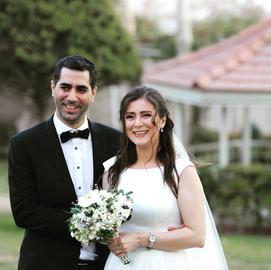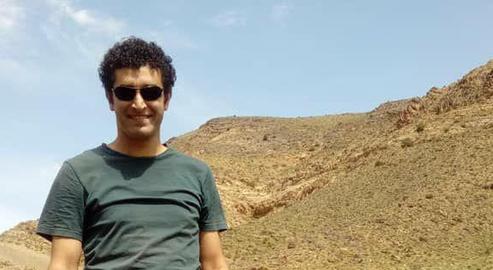On January 8, 2020, a Ukrainian Airlines passenger aircraft was shot down over Tehran by two missiles launched by the Islamic Revolutionary Guard Corps. The tragedy, which Iran still insists was the result of "human error", claimed the lives of all 176 people onboard and pitched their families and loved ones into a living nightmare - one they are still living through today.
Among the innocent civilians on Flight 752 were 82 Iranian citizens, 63 Canadians,11 Ukrainians, 10 Swedes, seven Afghans, three Britons and three Germans. They included doctors, students, athletes, activists and environmentalists: individuals pursuing their own dreams and ambitions both inside and outside Iran, and with bright futures ahead of them.
An international investigation into the incident is underway, spearheaded by Canada, France and Ukraine. But in the meantime, the devastated families of the PS752 passengers are still in limbo. Bereft of either justice or accountability for the disaster that shattered their lives, some of these individuals are now being represented by the Association of Families of Flight PS752 Victims, which has published a series of heart-rending personal letters and testimonies to honor those who were killed on January 8.
IranWire is supporting the Association's fight for justice by translating these final tributes into English and publishing them on our pages. We hope that through these efforts, the remarkable lives and aspirations of those aboard Flight 752 will not be forgotten.
Siavash Passed Through the Fire
For Siavash Ghafouri Azar, a PS752 Passenger
By Dariush Ghafouri Azar
Siavash was born in late 1984, the youngest son in the family and the third child, with a brother and a sister older than himself.
“Give him an Iranian name.” And they did, a name from the Persian Book of Kings. Siavash was a rider of black warhorses, a hero who passed through fire. We never thought the day would come when we’d have to mourn him.
After he finished his primary and high school years in Tehran, Siavash went to Gilan University for a degree in mechanical engineering. It was 2007, the same year in which he left his family. It wasn’t easy to be away from his father, mother, brother and sister. This was a man who said ‘I love you all’ with such ease, and was so generous in gestures and kindnesses. If there were obstacles in his path, he’d move them aside and never lose hope. He wanted to emigrate after graduation. And after so much hard work, he got what he wanted.
“The scholarship came. Concordia University. Montreal.”
His family didn’t know whether to rejoice or be worried. Siavash wanted to go but relations between Iran and Canada were poor. They had killed Zahra Kazemi, an Iranian-Canadian photojournalist, in Evin Prison and the case had hit the stone wall of the Iranian judiciary.
“They didn’t give me a visa. Look. This says I was rejected. Relations are bad.”
Siavash now learned German. He wanted to try Europe this time and again, he was successful, getting an offer from the University of Vienna.
“The visa has to come before tomorrow. Yes, the suitcases are packed. If the visa doesn’t come, I’ll get conscripted.”
The visa didn’t come. When it did, he was called upon for his mandatory military service. A top student in mechanical engineering was given a traffic officer’s uniform and sent out to fine cars on the old Karaj road.
“They want me to finish this booklet of tickets before nightfall. Why? Why should I accept doing this?”
Siavash finished his military service in hatred and misery. He stayed for another two years in Iran and learnt his fourth language, French, while also holding down a job. He did not want to wait any longer. He got another offer for a masters degree in mechanical engineering and left for Canada in 2014.
“Now everything is real. I am going. I am saying goodbye for real this time.”
He left for Canada. He had already bid farewell to many of his friends. His brother was in Canada already, and his sister was set to join them. It hadn’t been easy for them to say goodbye to Siavash: a bright young man full of camaraderie and innocence. But he did leave Iran. Waiting for him on the other side was not only a new land, but love.
At university, Siavash met Sara Mammani, another PS752 passenger. They finished school together. In the last year, Siavash got his dream job in an airplane engine factory. All that remained was to buy a house nearby.
“This is a good house. Beautiful trees. From the living room, you can see the street. What do you think, Sara?”
They bought the house. All the hard work of the years before now bore fruit. In the new land, Siavash was happy and satisfied. He had no issues with his employer. He was friends with his neighbor. He could see his brother and sister whenever he wanted. They were going to get married and planned to do it in Iran in late 2019, because Sara’s mother was sick and might not make it through to next year.
“Don’t go,” Siavash’s father said, ”These are not good days. I am worried.” The November protests were only just dying down at the time.
“It’s only for two weeks. Two weeks! And where are we going? It’s where we grew up.”
Siavash was disciplined in both work and life. Just like he didn’t want to dish out traffic fines with no reason, he didn’t want to mess up the details of a plane engine. He didn’t like the dry branches of the trees in the house to go untrimmed. He was careful in choosing the flight and the plane. He was precise in everything. The Ukrainian Airlines had a Boeing. It was a three-year-old plane.
“It won’t be dangerous. We’ll take this one.”
He had become a Canadian citizen just a few months ago. Siavash cared about his papers and kept checking them. In the pictures that were published in the first days after the downing of the plane by the missiles, you could see a burnt passport picture of Siavash. A passport that was never given to his family. Just like the sealed coffin, no one knew what it had to do with him.
“The coffin is sealed. You can’t look inside.”
Siavash’s parents have large pictures of their children and their respective bride and their groom on their wall. “Soon you’ll have a large picture of Sara and I on the same wall,” Siavash used to say. “Mother! Get ready. I’ll be sending you a big picture.”
The wedding finished, and they did take pictures; pictures that would not find their way onto social media. Siavash didn’t want that. He hated fame. He just wanted one picture for the wall of his parents’ house, a big picture of Sara and himself, next to his brother, next to his sister. Next to the grandkids. A picture in which they are happy, beaming, having the best night of their lives.
After saying goodbye at Sara’s house, he called his mother. “Come back! The photos are ready in the size I wanted them. Now you just have to frame them. I don’t know why but I didn’t get to see you enough this time and I can’t let go, even though I know I’ll see you soon in Canada!”
Siavash and his wife took their seats on the plane. He said he wouldn’t come back again. Before the flight, his sister called him: “Siavash! Iran’s skies are not safe. The flights must be cancelled. Dear God, I beg you, don’t get on that plane.”
No one could convince Siavash to come back. No one could convince 175 others onboard go back. Because no one could guess that a mobile air defense unit, not connected to the national network, was standing guard a few kilometers away, like a ruthless hunter, looking to the Ukrainian airliner, readying its weapon, preparing to drench the blue skies in blood, in cries, in fear.
“I promise to call as soon as I get to Kiev.”
This was Siavash’s last conversation with his sister before the plane took off. In his suitcase, he had an Iranian carpet, gold, the wedding gifts and some local nuts: souvenirs of Iran. He was bringing gifts back for his friends and neighbors with which they planned to decorate their homes.
Siavash passed through the fire, but no one saw him come out the other side. When the pilot said “I see the light of a missile”, Siavash squeezed his wife’s hand and looked down at the on-off lights of a city that hadn’t been kind to him.
When they collected their mobile phones – only to never give them back – a picture caught the attention of one of the soldiers. It was the cover of Jose Saramago’s Blindness, Siavash’s cover photo on his mobile phone for the last ten years. A novel about blindness, taking place in an imaginary city racked by a terrible disease. A city losing its conscience, in which it has become commonplace to commit crime. A city that has become a prisoner of darkness.
Siavash loved light. With the Blindness cover on his phone, he wanted to remind himself of how much he hated the dark. They shot down his plane and they stole his burnt passport and his mobile phone. Saramago’s Blindness didn’t disturb their conscience. The pictures of himself and his wife were passed all over the internet, bringing useless cries in their wake. But for those who don’t forget, Siavash was not forgotten. He was supposed to come back home but he didn’t. He was supposed to decorate his house but he never did. Siavash went to pass through the fire, but his family burned instead.
Translator: Arash Azizi
Editor: Hannah Somerville
visit the accountability section
In this section of Iran Wire, you can contact the officials and launch your campaign for various problems




























comments